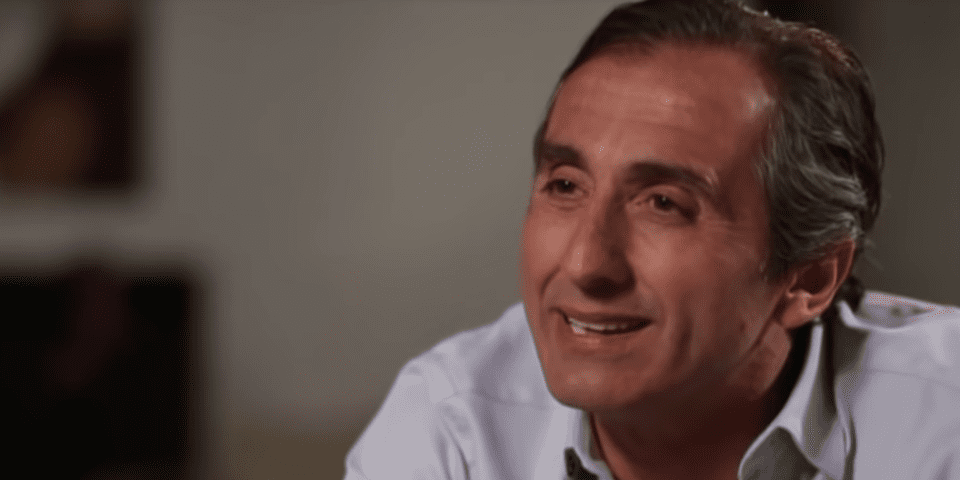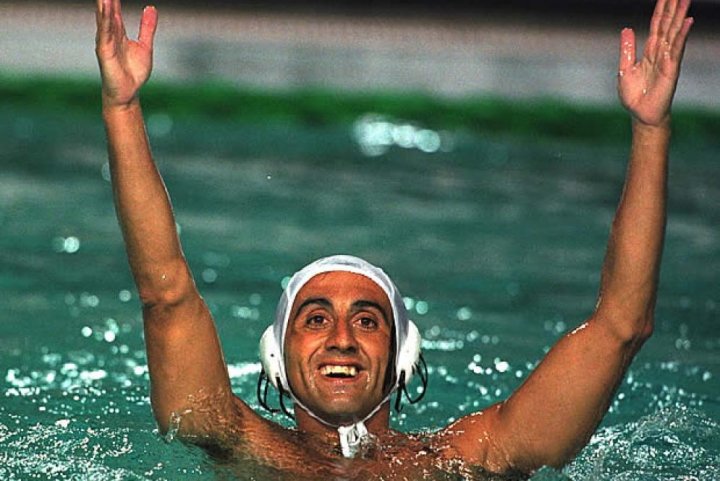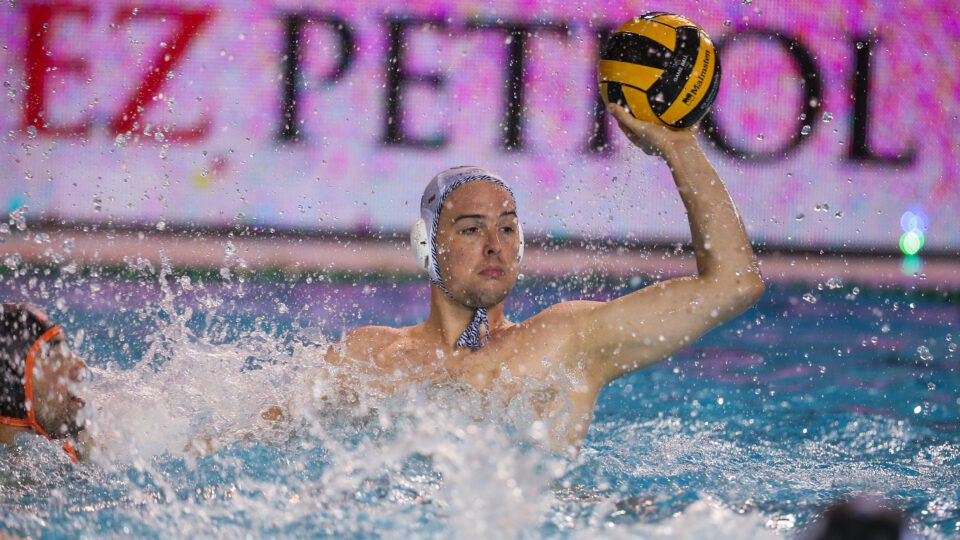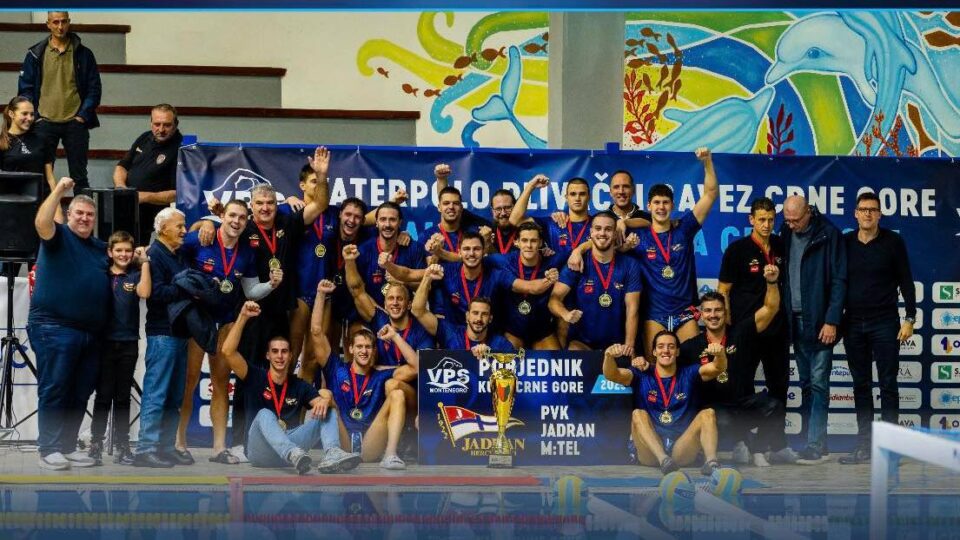Manuel Estiarte, the only water polo player who represented his country at six Olympic Games, is one of the legends od the Spanish water polo. He won Olympic gold in Atlanta 1996, the silver medal in Barcelona 1992. He played in Spanish clubs Manresa, Barcelona, Catalunya, and Barceloneta and in Pescara and Savona in Italy.
He is still in the sport, but now in a different role. In the last few years, he has been an assistant coach in the football club Manchester City. He works along with his friend Pep Guardiola, Manchester City’s head coach.
During the suspension of the competitions, he is “imprisoned” in his home in Pescara. In a long interview with the website Waterpolo Italy, Estiarte talked about the past, present, and future of water polo after the coronavirus crisis.
-I would not want to be misunderstood, because what is happening is undoubtedly dramatic, painful, unexpected for our times. But finally I’m close to my wife Silvia. Unfortunately, my life in recent years has taken me away from Pescara, where she lives and works. I try to see the positive side of this tragedy.
In a few months, he will turn 59, and he has lived fantastic years. From water polo, to the International Olympic Committee (he was a member of the IOC from 2000 to 2006 and now in football that matters. Important experiences that enriched him. What would you like and could give to others about all this?
-Maybe nothing. It is the experience of my life. Everyone has his own, what he deserves, what he seeks, the one for which he fights. You speak of a small part of my life, the sports one. I love and will always love. Then there is the big one: my parents, my brothers, friends, my wife, my daughters. This is true, daily, felt life. Of course, I was privileged, but I also fought a lot. I sweated a lot in the water to be able to find this road, which led me to practice a sport that I loved, which led me to travel around the world, which brought me to Pescara, to Savona. This road led me to the Olympic Games. I met extraordinary people. Then in the IOC, then football, where I live in a different world, but always beautiful and powerful. And then let’s face it, on this road I met Silvia, my wife.
Manuel met Silvia 33 years ago. The family has always had a predominant role in his life.
Yes. My growth has been with the values of my family. Maybe as a boy, I didn’t realize it, but dad and mom kept the bonds between us. Just like today, I have them with my brother. But it’s how you believe in the family, as I believe in my wife, in my daughters today. I owe it to my parents if I have this way of being and thinking.
He had two extraordinary experiences in the Olympics: one full of anger in Barcelona, one full of joy in Atlanta. How much and how do you think about it?
-At the six Olympics in which I participated, four were the best moments. Without a doubt, the first one I attended: Moscow! I was just eighteen years old, and to be honest, I still get excited. I was a child who came to realize his dream: to participate in the Olympics. Who would have thought that I would come to win it? I was born in Manresa, a small town, where water polo didn’t exist, where the only thing I wanted to do was to play with my older brother. And here I am in Moscow! Olympics! It was all for me.
Olympic silver in Barcelona and gold in Atlanta
In Barcelona 1992, Spain won the silver medal. It suffered a loss to Italy in the final, after three overtime periods.
–I have a beautiful memory of those games played at home, family atmosphere, lived with our people, certainly with a painful ending, even if the silver won was then the highest goal reached by Spain. Beautiful game, exciting, with extra time, a privilege to have been there. We fought against Italy “to the death”. They won, congratulations today. But we were great actors, without any doubt.
Photo: Manuel Estiarte/Facebook
In Atlanta 1996, Spain won the gold medal.
-We didn’t shine in the first phase. Today, everyone remembers the final match. But, the real game was with Hungary in the semifinal. In the quarterfinals, we sank the hosts in front of a wild audience. We led 5:0, then we stopped. They recovered with four goals, but we advanced to the semifinal (5:4). We had a great opponent in the semifinal. Hungary had an excellent team: Kasas, Benedek (who was also the best scorer), Molnar, Kiss. But we were calm. We were trailing for most of the match, but with three goals in the final quarter, we secured the gold medal game (7:6). And the final (against Croatia): we were very sure of winning. We were down at halftime (1:3), but we clinched the gold (7:5).
Estiarte’s last Olympic appearance was in Sidney in 2000. Spain finished in 4th place.
– Beyond the fourth place, it was over for me. Tears? I was almost 40 years old, and for me, that was the last game in the national team. The last contact with the water. My sporting life ended that October 1st, 2000. And I believe that for me this was also a great emotion. After 20 years from the first time in Moscow.
Fantastic group of people without a leader
One of the players of the golden Spanish team Miki Oca (who is the head coach of the Spanish female team today), said about that team: Manuel was the leader, Jesus Rollan (goalkeeper) was the soul. Do you agree?
-It is always challenging to have the right perspective. When we won silver in Barcelona, people didn’t consider it much. But, Spain at that time was not Russia, Hungary, Yugoslavia or Italy, which had a background of decades. Spain did not have a water polo tradition. We had never won an Olympics or a big event, like these great teams where the water polo tradition started at the beginning of the last century. The past is important. We were at the starting point. The group of young people from Madrid, with us Catalans, managed to do all the continental finals from the ’90s to 2000, and we laid a foundation for the future. We were a fantastic group. Without a leader.
How much do you miss Jesus? (Rollan died at the age of 36, after a fall from a terrace at a spa near Barcelona, where was receiving treatment for depression-Ed.).
– I miss Jesus … I miss a minute with him. It was his choice, conditioned by many problems. It was no longer him. Nobody can blame him for what he has done. He was the most important player in our team. He was the best goalkeeper around. I miss him for a minute because when he left, I was not very close to him as with the others, for some nonsense, we were a little “cold”. While knowing that both of us wanted an unimaginable good. At that moment, I was not so present in his life. This is not having been in a moment of great need.
Estiarte has two daughters, Nicole and Rebecca. If he had a boy, would he have sent him to play water polo?
-Absolutely no. Perhaps my wife insisted that both my daughters play sports. But not at a competitive level. It is a question of DNA. I wasn’t just living with my talent. I worked hard. I gave it my all. I quit when I was 40, because I was tired. Both physically and mentally. Because of that, I let my daughters choose their path.
Explaining why he quit water polo, Estiarte said that a lot of his friends and former players (Hungarian Andras Gyonyosi, Carlo Silipo, Franco Porzo), even the Spanish Federation, always asks him why he left water polo.
–Water polo has given me a lot – family, friends, emotions, travel. But I also offered to water polo a lot – dreams, disappointments, 20 years of my life … No, I did not feel “inside” to remain in that environment. And I detached myself from sport. Then the Olympic Committee called me. It was a different experience. I accepted it because they voted for me.
A telephone call that changed the life
In 2008, Estiarte joined the coaching staff of the FC Barcelona.
–Joan Laporta, the president of Barcelona, called me and suggested that I should go there. I didn’t immediately believe it, then … I spoke to my friend Pep Guardiola. He also was starting an adventure on Barcelona’s bench as a head coach. From that point on, a new life began. So I am once again involved in sport, nervousness, responsibility. But it is another thing that I would not have expected. Maybe it’s the reward for my life, for what I’ve done before. Or, perhaps because of my athletic behavior. It is an opportunity that has lasted for twelve years.
Water polo has given him a lot. How does Estiarte see water polo after Covid -19? Closed pools, matches without spectators. Is the risk of having to face a road that is too steep?
-Water polo will make it. I’m sure. This is the most beautiful sport in the world. He churned out great athletes. Reliable, capable, and for this reason, those who turn around us, managers and beautiful company, must be at their height. It will be a steep road, but water polo will make it. We will cry during the journey, and it will be very hard. But when it wasn’t like that? Will it be harder? Ok, so what? It is a moment that nobody expected, we weren’t ready, nobody would have imagined such a disruptive event could happen. But we are reacting and recovering.
Water polo will never die
Estiarte said that the time would come when we should face a different reality, with the virus that will always run, bringing with us a terrible situation like the one we are experiencing today.
-It will be difficult, but water polo will never die. There have always been ups and downs. We are different. I repeat, very hard, complicated: the worst that can happen in life is not knowing what will happen tomorrow, we still ignore many things because there are no precedents, there are no examples. New decisions will have to be made. Water polo has overcome enormous difficulties. It was played at sea, in outdoor swimming pools in winter with cold water. But it will make it and overcome new challenges. I’m sure.







